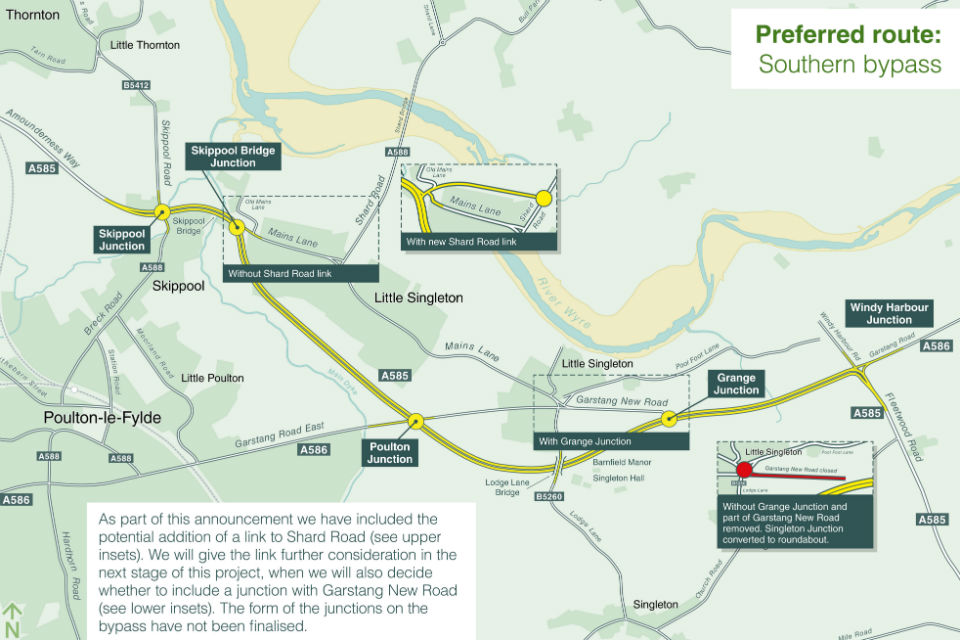Highways England announced the preferred route for the dualling of a 30 mile section of the A303 between Sparkford and Ilchester.
The move for the £179 million scheme follows the recent announcement of the preferred route for the £1.6 billion upgrade of the A303 further up the road near Stonehenge.
Transport Secretary Chris Grayling said:
The government is taking the big decisions for Britain’s future and investing in the biggest roads upgrade in a generation.
Our major upgrade to the A303, linking the M3 in the south-east and the M5 in the south-west, will create an expressway to boost the regional economy and provide better transport links.
As part of this work, the £179 million upgrade between Sparkford and Ilchester will cut congestion, reduce journey times and improve safety for all road users.
Jim O’Sullivan, Highways England chief executive, said:
The A303 is a vital route between the South West and the rest of the country and this upgrade is absolutely necessary to provide much needed capacity and to relieve the congestion which drivers have suffered for years.
People who responded to our consultation earlier this year demonstrated strong support for option one, which closely follows the route of the existing A303 and so would have less impact on the rural setting.
We now look forward to continue to work with our partners and the local community to develop more detailed proposals to start construction in 2020.
In the meantime, we invite visitors to our planned drop-in sessions where we can discuss the preferred route with those interested.
As part of its £15bn investment in motorways and main ‘A’ roads the Government is committed to upgrading all remaining sections of the A303 between the M3 and M5 to dual carriageway standard, starting with three schemes: those on the A303 at Stonehenge and between Sparkford and Ilchester, and the third on the A358 between Taunton and Southfields.
Two options for the three-mile section between Sparkford and Ilchester were consulted on earlier this year. The preferred route will support the local economy to grow by making the area more accessible for both
tourism and business.
The proposed route will offer a high quality dual carriageway with new two-level junction access with local roads and communities. The proposal will protect biodiversity and road users would benefit from the shorter route.
It will improve local access for pedestrians, equestrians and cyclists.
Formal consultation is due to take place early next year along with the submission of a development consent order planning application.
Two public drop-in events where people can view the preferred route and talk to our project experts will be held at:
- Haynes Motor Museum, Wolverlands, Sparkford, Yeovil BA22 7LH Tuesday 7 November 2017 3pm to 7pm
- Haynes Motor Museum, Wolverlands, Sparkford, Yeovil BA22 7LH Friday 10 November 2017 3pm to 7pm
Information points
Copies of the preferred route plans and supporting reports will also be available at the following local information points from Tuesday 24 October:
Public Information Points
- Wincanton Library, 7 Carrington Way, Wincanton, Somerset, BA9 9JS Barrington Court, Barrington, Ilminster, TA19 0NQ
- Yeovil Library, King George Street, Yeovil, Somerset, BA20 1PZ Lytes Cary Manor, near Somerton, Somerset, TA11 7HU
- South Petherton Library, St. James Street, South Petherton, Somerset, TA13 5BS Montacute House, Montacute, TA15 6XP
- Taunton Library, Paul Street, Taunton, Somerset, TA1 3XZ Somerset County Council, County Hall, Taunton, Somerset, TA1 4DY
- Martock Library, The Shopping Centre, Martock, Somerset, TA12 6DL South Somerset District Council, Brympton Way, Yeovil, Somerset, BA20 2HT
More information about the preferred route can be viewed on the scheme website.
General enquiries
Members of the public should contact the Highways England customer contact centre on 0300 123 5000.
Media enquiries
Journalists should contact the Highways England press office on 0844 693 1448 and use the menu to speak to the most appropriate press officer.
Link: Press release: Improved journeys to South West a step closer as A303 preferred route announced
Source: Gov Press Releases


